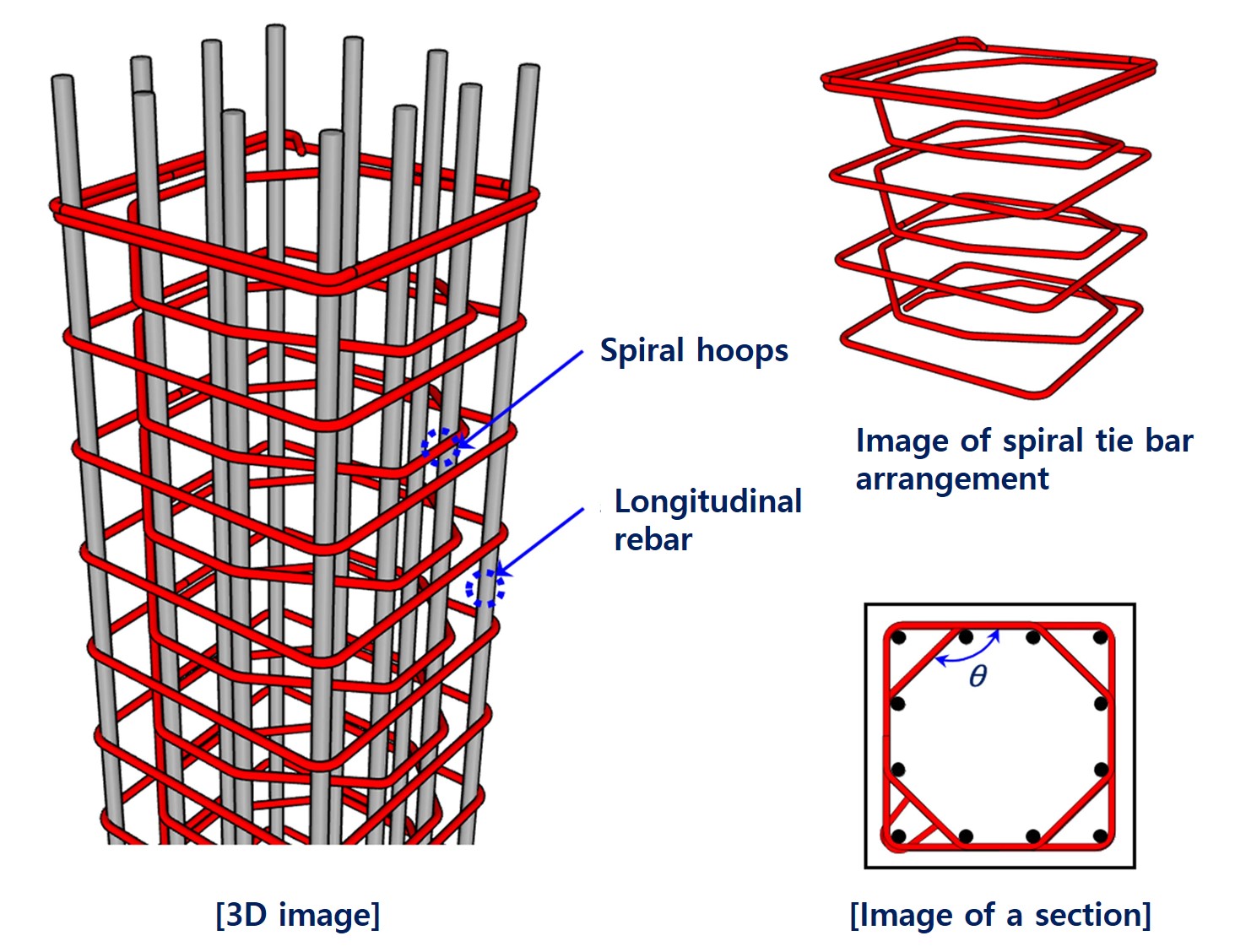


- KISWEL顾客至上
宣传中心
Public Relations
KISWEL 新闻 Latest News
- (2023 Feature articles/Magazine Chosun) 50th Anniversary of KISWEL (2)
- 登录日 : 2023-01-25
"Contributing to social development through the world’s best quality steels"
_옛날간판.jpg)
▲ KISWEL, a welding consumables specialist, was established in 1973.
General consumers are not directly in contact with the metals industry despite the important role it plays in the Korean economy.
Welding holds a strong influence on diverse end-user applications in several industries such as airplanes, vessels, trains, and automobiles,
as well as infrastructures like buildings, roads, and bridges. KISWEL, though working in the sidelines, is at the heart of welding,
holding core root technologies that connect the world safely.
KISWEL, which marks its 50th anniversary this year, was established in a period during which Korea was yet to build its industry and technology.
The KISWEL Group’s late founder and honorary chairman, Hong Jong-Yeol who was deceased in 2019 had established a company “Koryeo Co.” in 1945 and expanded his business by dealing with petroleum products, fishing equipment, and marine products. Having gone through the era of chaos prompted by liberalization from Japanese rule and the Korean War, the founder concretized his solid will to forge an industrial foundation that would be essential for the state’s development, apart from the consumer goods business. He then established the “Korea Iron & Steel Works” in January 1961, after having initiated R&D from 1955 to locally produce wire ropes. With a corporate mission of “Contributing to society by producing the world-level best quality steel”, he dived into a field of special-grade overhead electricity lines as a means of contributing to economic growth, the national defense industry, and natural resource exploration. The founder created a corporate division in KISWIRE Co., Ltd. dedicated to welding electrodes in 1969 but in 1973, he split it off as a separately-run company named KISWEL. It was formally incorporated in July 1973, with relevant facilities relocated to Buan-dong, Busanjin-gu, Busan according to the company’s spinoff strategy. It was a historic moment that “KISWEL Co., Ltd.” started to make its way.
KISWEL Co., Ltd. continued to achieve remarkable growth by expanding factory size with the installation of the facility for the production of submerged arc welding wires in January 1974, acquiring certification from Nippon Kaiji Kyokai (NK) in April of that year followed by certifications from DNV, Norway, and the American Welding Society in July and September of the following year, respectively. The company moved its business to another location (at Hakjang-dong, Buk-gu, Busan) in July 1977, to accommodate its expanded facilities. The monthly production capacity escalated from 800 tons at the time of startup to 1,600 tons in just four years. KISWEL earned a certification from Germanisher Lloyd (GL), Germany, in August 1977, and set up a production line for solid wires dedicated to MAG welding in December of that year. It entered a technical tie-up with Tokuden Co., Ltd., Japan, in June of the following year and then completed a factory for manufacturing flux wires, electrodes, and wire rods thereby expanding its scope of production up to special welding consumables since October.
"Acquired the JIS mark certification for the first time in Korea"
Since its foundation, KISWEL has seen tremendous growth. In January 1980, the company started operating a dual manufacturing system at Busan factory and Yangsan factory. In addition, KISWEL has built a foundation for entering international markets while acquiring certifications from a variety of classification societies including Korea, Norway, and the U.S. with regard to its welding consumables for stainless steel as well as Korea’s first JIS (Japanese Industrial Standards) mark permit for both of its Busan and Yangsan factories, respectively at 1982 and 1984.
After four decades since its foundation, the company received recognition in the global market for its competitiveness and won the $5 million Export Top Award in 1985. KISWEL established the first local welding technology R&D center accredited by the Ministry of Science and Technology in February 1987, with which the company has spurred the localization of welding consumables. One of the achievements therefrom is a designation by the Industrial Advancement Administration as an entity with “Quality Management Class 1”. The company completed a larger factory at Changwon and relocated its Yangsan factory to Changwon in August 1987 and won the $10 million Export Top award in November of that year.
Here are anecdotes given by a KISWEL official.
“KISWEL quickly expanded since 1980 and obtained ISO 9002, the world’s best-known quality management standards, in 1995 in recognition of its quality assurance capability at the global level. We were awarded the $50 Million Export Top award in 1996 which was the first in the welding rod industry.”
― It was during this period that KISWEL actively sought overseas expansion.
“Our company made its first launch into the international market by establishing a local factory in Malaysia (KISWEL SDN.BHD.) in 1997. Since then, it set up a branch office in Amsterdam, the Netherlands, as a base to expand sales in Europe through which the company obtained the RAL quality marks, Germany, with respect to its 13 flagship products.”
"Setting up a manufacturing factory in the U.S.A. in 2006"
_1000만불_수출탑.jpg)
▲ KISWEL won the $10 Million Export Top award in November 1988.
In January 1999, KISWEL changed its company name in English to ‘KISWEL LTD.’, reflecting the company’s growing ambitions in the era of globalization. It then accelerated overseas expansion by establishing a branch in Shanghai, China, in February of that year, and local incorporation in the U.S.A. (KISWEL USA INC.) in November. The culmination of the company’s long-cherished dream was a manufacturing factory locally established in the U.S.A. in 2006, equipping itself with the automated FCW production facility thereby being capable of competing with products made in advanced countries. Its journey to expand continued, such as a branch in Dubai, UAE (February 2007) as a sales base for the Middle East market followed by a branch in Bangkok, Thailand (July 2009), and a branch in Ho Chi Minh, Vietnam (August 2009).
KISWEL does not only stick to quantitative growth but also strengthens its technological expertise by establishing an R&D center equipped with the latest testing and research equipment. As a result, the company acquired QS 9000 and ISO 14001 certifications from LRQA, Germany (September 1999) as well as RINA (Italian classification society) certification with respect to six items (June 2000).
KISWEL solidified its presence as a specialist in welding consumables, boasting its production capacity of up to 100,000 tons a year as of 2002. That year KISWEL Chairman Hong Min-Cheol was conferred the Bronze Tower Order of Industrial Service Merit in recognition of the company as an exemplary exporter in Korea with 70% of its turnover created by overseas sales. The KISWEL Chairman, the third son of late Honorary Chairman Hong Jong-Yeol, who had started his career as a manager of the ‘Korea Iron & Steel Works’ New York branch, was inaugurated as president and CEO of KISWEL in 1987 and now takes office concurrently as Chairman of KISWEL and Chairman of Samhwa Steel. An official at KISWEL addressed that, despite sluggish sales given the severe recession in 2008, the company successfully overcame hardships by putting in place TPS (Toyota Production System) which is an integrated socio-technical system and at the same time collecting enterprise-wide capabilities to increase efficiency.
"Brand prominence in markets of automobile, shipbuilding, and construction"
For KISWEL, this year marks the 50th anniversary of its foundation. The company has taken the lead in the development of welding consumables, in the span of the backward, desolate economy of Korea. It implemented automation in its production earlier than anyone else, pursuing the best quality by ways of globally acceptable quality management systems. As of today, KISWEL has gained top-notch expertise in the industry, with continuous R&D and collaboration with experts in relevant fields. The company has a wide range of project references, encompassing Korea’s highest-story building, Korea’s first 20,000 TEU-class container ship, Korea’s first localization of welding consumables for armor steel, the world’s first hybrid bridge in a combination of cable-stayed girder and suspension, Korea’s first LNG-powered ship and ultra-large excavator for mining. As such, KISWEL creates unlimited possibilities together with its clients in diverse industrial applications.
Kim Young-Rak, Head of the Marketing Division of KISWEL, pointed out:
”An array of welding consumables that we produce is widely used in various industrial sectors including automobile, heavy machinery, shipbuilding, and construction plants. Meanwhile, KISWEL exerts every effort in pursuit of co-existence for the sustainable development of the welding industry, such as joint development with other organizations and research institutions, providing subsidies to welding-related societies/associations at home and abroad to nourish basic technologies, as well as participating in international exhibitions and supporting them.”
In 2019, KISWEL, together with POSCO, took part in FABTECH 2019, North America’s largest exhibition for metal forming, fabricating, welding, and finishing. In this exhibition, both participants rolled out their product lines segmented into six fields including automobile, energy, and ocean. In addition, they demonstrated on the spot PosZETTM, which is a welding technology ensuring the prevention of porosity defects and reduction of slags in the welding of ultra-high-strength coated steel sheets used in automobiles, which attracted huge attention. On the other hand, both firms had a ceremony in May 2020, of business cooperation including joint research and technical tie-up to develop advanced welding consumables dedicated to various industries. From 2020, they conducted joint R&D for three consecutive years to develop and localize high-performance welding consumables for industrial applications such as shipbuilding, high manganese steel, marine structure, plant, etc.
Here is an explanation by Joo Se-Don, Director of the POSCO R&D Center (Vice-President).
”Steel grades and welding parts performance required by individual sectors, such as automobile, shipbuilding, marine structure, and plant, vary broadly. In particular, ultra-high-strength galvanized steel for use in green cars, high manganese steel for cryogenic LNG storage tanks, high-strength steel for fittings, and steel for large heat-input welding for storage tanks must meet the fundamental weldability requirements of the respective industrial sites. Both POSCO and KISWEL agreed to jointly develop welding consumables differentiated to respective steel grades, thereby achieving import substitution and contributing to cost savings for SMEs in need of welding in their industrial sites.”
_수상.jpg)
“Welding Day” was recently proclaimed to introduce the excellence of Korea’s welding industry and celebrate the recognition of high achievers in fields involving welding. In its first event in 2021, KISWEL’s Vice Chairman Choi Hee-Am received the SMEs and Startups Minister Prize Award. KISWEL was given a certificate from Korea Commission for Corporate Partnership on the second Welding Day in 2022.
"Methodology excellent in seismic resistance"

▲ The ‘KSS method’, developed by KORHEAT, is awarded a certificate for the Construction of New Technology.
The “KSS method”, developed by Korea Heat Treatment Co. (KORHEAT), an affiliate of KISWEL, was certified as Construction New Technology (No. 889) in 2020 and became a trending topic in the industry. Its official title is ‘Spiral Rebar Method for Horizontal Reinforcement’ (Korea Heat Treatment Seismic Spiral Method, hereafter KSS method). KORHEAT described that the method is on a whole other level compared to conventional techniques, in terms of technological benefits.
Here is a description of Yoo Tae-Heung, the Principal Researcher of KORHEAT.
”The local construction industry suffers from triple hardships such as the increase in labor cost, lack of the workforce triggered by the COVID-19 pandemic, and enforcement of a 52-hour workweek system, accordingly requiring technologies allowable for reducing project period and costs. The KSS method enables rebar cages to be prefabricated off-site in an integrated form of longitudinal rebars and transverse ties, which means there is no need for separate rebar placement and lap slice, thus leading to reduced cycle periods by more than 50% and construction cost saving owing to simplified formwork. Furthermore, the effect of lateral confinement on columns ensures the ductile behavior of concrete making the structure earthquake-resistant.”
The relevant industry admits that, in the case of using conventional supplementary tie bars, there are often problems in securing the required quality arising from mutual interference with longitudinal bars, which results in excessive hoop arrangement and concrete pouring failure. The novel rebar layout method, KSS method, is developed by KORHEAT to solve such problems making the most of the advantages available from the lateral confinement effect of the continuous spiral reinforcement without sacrificing the benefits of the conventional tie bar applications. The KSS method is fabricated in an integrated form, thereby preventing the loosening of anchored hooks on the cast-in end while maintaining the strengths of spiral reinforcements. It features superior stability incomparable to the conventional tie bar arrangement. The company expects that the applications of KSS method will be expanded, thanks to its many advantages that can be applied to the reinforce concrete structures and PC (Precast Concrete) structures.
"Dreaming of a century-long enterprise"
The corporate philosophy of KISWEL is “Back to Basics” whenever a crisis hits. Its mission is to improve the national interest by contributing to enhancing the national competitiveness, following its Founder and Honorary Chairman Hong Jong-Yeol’s wishes, “Being devoted to key industries that are essential for national growth rather than consumer goods business”. In this sense, the company put great value on the development of locally-made products, such as welding consumables differentiated to unique properties of each steel grade specific to the government procurement market including natural resources, infrastructure, electric power, energy, national defense, and railway vehicles.
The core value on which the company recently emphasizes on the most is a partnership-based collaboration for mutual benefits.
Ryoo Cheol-Woo, Director of Overseas Business Division,
“The survival and performance of an organization significantly rely on the successful collaboration of a variety of players engaged in the value creation ecosystem it belongs to. The tendency is quite different from the past in which each business concentrated largely on its internal capabilities to improve business performance. KISWEL is prepared to sustain business resilience by quickly adapting itself to the post-COVID-19 business environment, and aggressively exploring foreign markets having unlimited potential. As far as the domestic market is concerned, we are committed to creating a sustainable system for shared growth based on partnerships, rather than a war of attrition through excessive competition.”
It now remains to be seen how this dynamic company equipped with top-notch expertise accumulated over the last 50 years will enjoy continuing growth to become a century-long enterprise and beyond.
< Copyright: Magazine Chosun >







